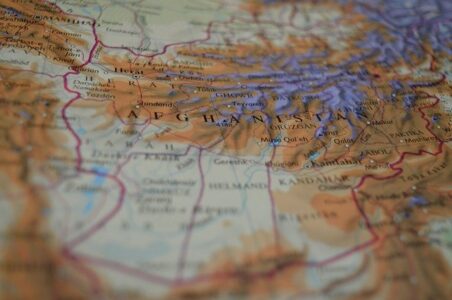Regional Security Dialogue on Afghanistan
Context:
A regional security summit was hosted by India on November 10, 2021. The summit was attended by eight nations including Iran and Russia.
Contents
Regional Security Dialogue on Afghanistan
- Regional Security Dialogue on Afghanistan headed by NSA Ajit Doval.
- It aims to organize a conference of regional stakeholders and important powers on the country’s current situation and the future outlook.
- Invitations sent to Afghanistan’s neighbours such as Pakistan, Iran, Tajikistan, and Uzbekistan, and other key players including Russia, and China.
- Pakistan skipped the event blaming the ‘negative attitude’ of India while China cited scheduling issues.
- India reacted to Pakistan skipping the event as ‘unfortunate but unsurprising’.
- With respect to China’s decision, India said that even though unable to attend the dialogue, China has expressed its willingness to sustain contacts with India on Afghanistan through bilateral and multilateral channels.
- The next (fourth) round of the dialogue is expected to be held in 2022
Significance of the Regional Security Dialogue on Afghanistan
- This will be the first time that all Central Asian countries, and not just Afghanistan’s immediate neighbours, would be participating in this format.
- The enthusiastic response is a manifestation of the importance attached to India’s role in regional efforts to promote peace and security in Afghanistan.
- If peace is established in Afghanistan, it could become a major trading hub as a corridor of connectivity in the heart of Asia.
Why was Afghanistan not invited?
- Afghanistan was not invited since the government heading that country now is the Taliban, whom India has not formally recognised.
- The previous two Regional Security Dialogues were attended by Afghan representatives from the legitimate government there.
- Since the Taliban usurped power in August 2021, the Afghan embassies in foreign countries are manned by representatives from the Ashraf Ghani era and there is also a government-in-exile led by Amrullah Saleh.
- However, India did not extend invitations to either of the above parties probably because it did not want to antagonise the Taliban.
Why is India hosting the dialogue focussed on Afghanistan?
- Having a stable and peaceful Afghanistan is essential to peace in the region and also for India considering how the Taliban has provided safe havens to Pakistan-sponsored terrorist groups in the past.
- After the US withdrawal of troops and the rather swift takeover by the Taliban, the entire region was tense amidst concerns of refugees streaming out of the country and causing a resource-burden on neighbouring countries.
- There is also the concern of a re-emergence of terror strikes on Indian soil from actors that got covert and overt support from the Taliban.
- India enjoyed very good relations with the previous dispensation in Afghanistan and had invested and contributed heavily to rebuilding the war-torn country with several infrastructure projects ever since the US defeated the Taliban in 2001.
- India with hopes of being a global power and a key player in the South Asian region, would want to stay engaged with the scheme of things in Afghanistan.
- Additionally, India justly regards itself as a neighbour of Afghanistan, given its legal and Parliament-mandated claim on Pakistan-occupied Kashmir.
Way Ahead
- Preventing the illicit use of land: Emphasis should be on preventing the use of Afghanistan’s territory for sheltering, training, planning or financing any terrorist acts.
- Collective cooperation: Collective cooperation against the menace of radicalisation, extremism, separatism and drug trafficking in the region is needed.
- Inclusive government: The solution comes only through the formation of an inclusive government with the participation of all ethnic groups.
- Engaging with Taliban: Talking to the Taliban would allow India to seek security guarantees from the insurgents in return for continued development assistance or other pledges as well as explore the possibility of the Taliban’s autonomy from Pakistan.
- Role of United Nations: The United Nations has a central role to play in Afghanistan and that its continued presence in the country must be preserved.
- Socio-economic and humanitarian situation: Efforts needed to tackle the deteriorating socio-economic and humanitarian situation in Afghanistan, and underlined the need to provide urgent humanitarian assistance to the people of Afghanistan.
Source: The Hindu
Go through official website of Ministry for International Relations: Briefs on Foreign Relations
Also read
Discover more from Simplified UPSC
Subscribe to get the latest posts sent to your email.



